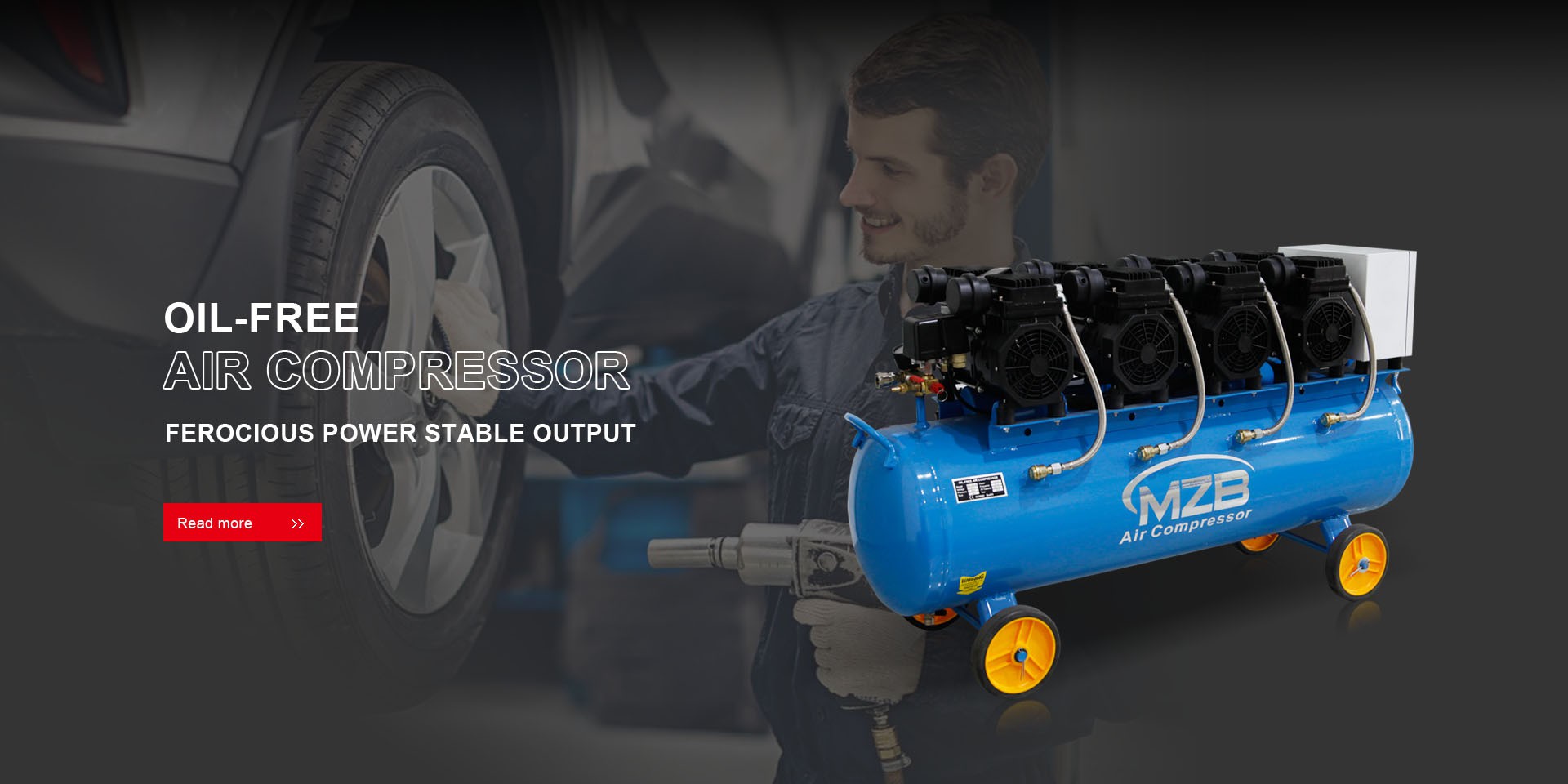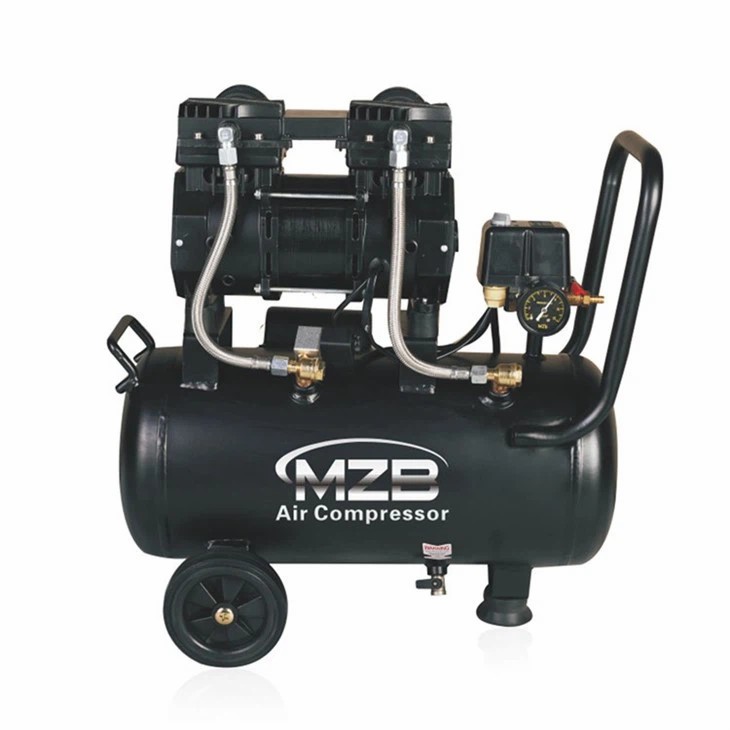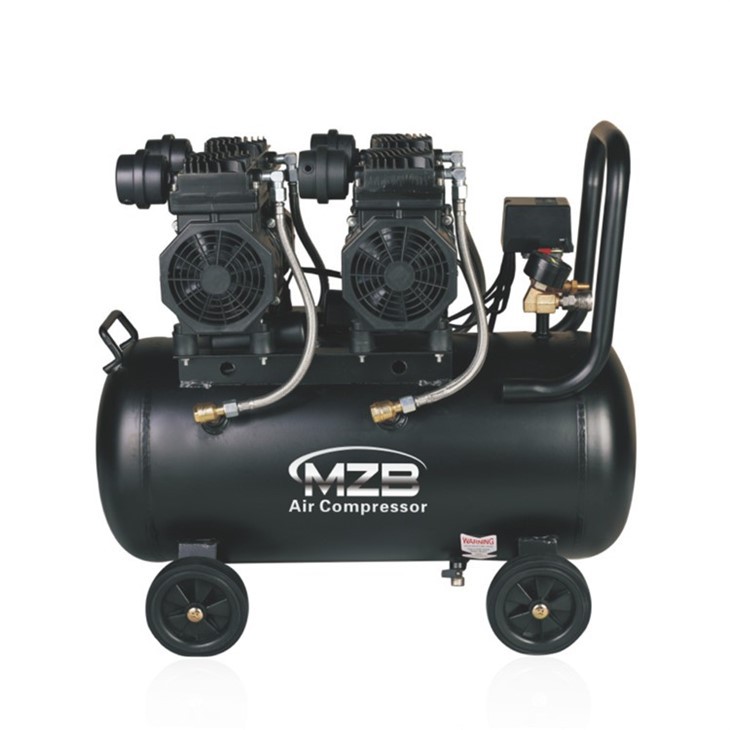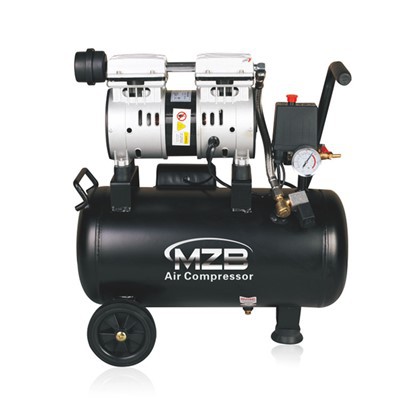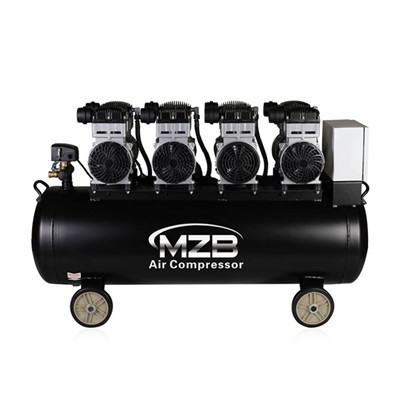Why Choose Us
Advanced Equipment
Equipment based on the latest technological developments has higher efficiency, better performance and stronger reliability.
Professional Team
The members of the team are highly skilled and proficient in their respective roles and possess the necessary education, training, and experience to excel in their jobs.
Customized services
Our team of experts will work closely with you to understand your needs and will provide solutions that are tailored to meet your expectations.
Professional team
The company team has sales center, foreign trade department, domestic sales department, R&D center, production department and after-sales department.
70L Tank 3HP Belt Driven Air Compressor
V-0.25 is a belt driven type air compressor this model power is 2.2KW/3HP This model is available with single-phase and three-phase motors design with 70 liter tanks. This belt driven electric air compressor is equipped with a wear resistant, high quality pressure gauge with an iron case and a thickened air outlet valve to give it a longer service life.
3Kw Heavy Duty Belt Driven Air Compressor
V-0.6 is a belt driven type air compressor this model power is 4KW/5.5HP This model is available with single-phase and three-phase motors design with 70 liter tanks, product features: adopting split type structure design, the motor drives the host wheel to rotate through the belt.
3 Cylinder 3Kw Belt Driven Air Compressor
W-0.36/8 W-0.36/12.5 This is a 3 cylinders belt driven type air compressor this model power is 3KW/4 HP is available with single-phase and three-phase motors design with 88 liter tanks. This Air Compressor features a powerful belt drive pump for efficient output delivery.
Heavy Duty Truck Use Belt Driven Air Compressor
WM-3.0/8 industrial series compressors are designed for heavy duty continuous use and recommended for the working professional. The range includes models to suit specialist nailing applications, mobile work vehicles and high volume workshop applications.
EXtremeflow Belt Drive Air Compressor
W-0.67-8 W-0.9-8 These two models are very popular in domestic and foreign markets is all heavy duty air belt driven type air compressor this model power form5.5kw to 7.5 kw. And the volume of the tank form 120 Liters to 3000 liters. This W type belt driven air compressor motor speed is 880 rpm.
The air compressor is equipped with an oilless pump for minimal maintenance and a tank for continuous and high-efficiency operation. Silent Copper Motor: This compressor adopts copper motors, efficient and energy-saving, which serves you for a long time without noise pollution.
8 Bar High Pressure Oil Free Air Compressor
The air compressor is equipped with an oilless pump for minimal maintenance and a tank for continuous and high-efficiency operation. Silent Copper Motor: This compressor adopts copper motors, efficient and energy-saving, which serves you for a long time without noise pollution.
Oil Free Portable Air Compressor
The air compressor is equipped with an oilless pump for minimal maintenance and a tank for continuous and high-efficiency operation. Silent Copper Motor: This compressor adopts copper motors, efficient and energy-saving, which serves you for a long time without noise pollution.
3 Cylinder Oil Free Air Compressor
The air compressor is equipped with an oilless pump for minimal maintenance and a tank for continuous and high-efficiency operation. Silent Copper Motor: This compressor adopts copper motors, efficient and energy-saving, which serves you for a long time without noise pollution.
What Is Oilless Air Compressor?
Oil-free air compressors do not use any oil within the compression chamber. Instead, some versions of this specialized air compressor type use alternative materials such as water or Teflon to protect components while allowing them to move smoothly without the use of oil-based or synthetic lubricants.
Drawing in Air
Oil-less air compressors start by bringing in outside air through their unloader valve and passing it through an inlet air filter (or filters) in order to ensure that the air is clean. The filter will limit damage to your compressor and its internal components. These filters are typically fine enough that they keep out dust, dirt and small debris.
First Compressor Element
You've probably noticed that your air compressor can create heat, and this often has to do with the low-pressure compressor element, because it's working without any oil.
Intercooler Access
After it's initially compressed, pistons will push the air through an intercooler, where the air can cool so it can be further compressed. Depending on your specific compressor, this step will either move it to the second compression phase or the final one.
Second, Higher-Pressure Compression
The air will move back into the main chamber of your air compressor - or the second chamber, depending on its design - and will be further compressed by a high-pressure element. The maximum pressure you'll achieve typically ranges from 116 to 145 psig.
Air Prep and Aftercooler Access
During its second phase of compression, the air will reach temperatures of around 150 degrees, requiring additional cooling before it can be used in other equipment. The aftercooler is the destination for air after its final compression stages, and this cooling allows it to be properly stored.
As air flows to the aftercooler, it will pass through a check valve designed to prevent any backflow, ensuring that air continues to compress and fill your tank. Backflow will damage your equipment and cause a major failure of the air compressor.
Pressure Switches
Detection equipment in your air compressor tank will monitor the level of air you have. When it falls below a specified level, the air compressor will turn back on and start working to rebuild the pressurized air in the tank. The pressure switch is what is used to monitor and turn the compressor off and on.
Benefits of Oil-Free Air Compressors
Less maintenance: Oil-free compressed air has significantly fewer maintenance requirements than oil-injected compressed air. Oil-filled compressors need regular oil changes, which can be expensive. Users also have to safely dispose of expired oil, which costs even more. However, oil-free compressors don't require manual oil changes. The most significant maintenance requirement is draining the tank after every use. This action is more cost-effective and less time-consuming than oil-injected practices.
Lower cost: Oil-free compressors have fewer financial requirements than oil-injected ones. They usually have lower upfront costs and last for a long time, making them worthwhile investments. Oil-free compressors have minimal components, so they require less money for maintenance and replacements. Some model types are equipped with regulators that minimize energy use, decreasing fuel expenses.
Environmental friendliness: Oil-free compressors also have a minimal environmental impact. Oil-injected units release pollutants into the atmosphere, which can harm employees and the environment. In contrast, oil-free models' lack of oil minimizes environmental harm.
A diminished risk of contamination: Oil contamination can lower or compromise the quality of your products, which could harm your brand's reputation - or even worse, your customers' health. Oil-free compressors are often required in fields like food and medicine, where oil-free, clean air is essential.
Multiple uses: You can position oil-free compressors in various orientations based on your required task, which displays their versatility. Their low weight and small size make them easy to transport. You can also move them freely without worrying about oil leaks.
A faster start: Oil-free compressors start more quickly, which can assist with project efficiency. Oil-injected compressors require more amps to start, taking them longer to power on. Oil has a viscous nature that makes it harder to move when cold. In contrast, oil-free compressors start fast no matter the surrounding temperature.
Oil-Free Air Compressor Applications




Pharmaceutical and medical: Cleanliness is critical for pharmaceutical and medical applications. To meet compliance standards, manufacturers might have to limit or eliminate oil use entirely. Every stage of medical manufacturing must follow strict guidelines, including the use of compressed air. By using oil-free compressors, you decrease the presence of possible contaminants in products.
Food: The Food Safety Modernization Act (FMSA) emphasizes how vital cleanliness is during food production. Oil-free compressors help food manufacturers avoid oil contaminants, letting them create a more sterile production environment.
Electronics: Oil-free compressors deliver pure and dry air for various electronic devices, such as printed circuit boards. These products contain intricate details that need preservation.
Textiles: Clean compressed air reduces production losses and fabric stains. The textile industry must meet certain compliance standards for safe production, such as air purity standards. Oil-free compressors allow for clean production.
Natural gas: The natural gas industry gathers, stores and transports natural gas. Heavy-duty applications like fume elimination, gas transfers and vapor recovery need compressed air. Oil-free compressors provide pure air without additional oil or contaminants.
Dry cleaning: Oil-free compressed air is essential for activities like pressing garments and processing solvents. The compressed air doesn't damage or add contaminants to clothing.
Energy exploration: Energy exploration teams identify oil and use various tools to extract it. Oil-free compressors have minimal maintenance and upkeep requirements, making them dependable choices for fieldwork.
Plastics: Plastic manufacturing requires steady supplies of air. Oil-free compressors are dependable options because of their minimal components and maintenance requirements. They provide consistent and clean air for plastic production.
Woodworking: Various woodworking businesses, such as furniture manufacturers, benefit from oil-free compressors' cost-effective and dependable nature.
Low-pressure environments: Oil-free compressors are ideal for low-pressure applications, like heating and cooling and aeration.
Plumbing: Plumbing professionals use oil-free compressors to test the water pressure in piping systems. The clean and oil-free units let technicians evaluate water quality without the interference of contaminants.
Painting: Painters can use compressed air for spray painting or to refine their artwork. Oil-free compressors let painters complete their art without the presence of oil.
Amusement parks: Roller coasters require clean compressed air, making oil-free compressors a perfect choice. Air systems can facilitate ride movement, help cars arrive at a stop, add to the immersive experience and complete many other tasks.
Aerospace: From launching rockets to controlling contamination, clean compressed air has many applications in the aerospace industry.
Our Factory
Wenling Daxi Xinfeng Electric Appliance Factory founded in 1995, underwent three innovations including the establishment of Taizhou Meizhoubao Air Compressor Manufacturing Co., Ltd. in 2003, and its name change to Zhejiang Meizhoubao Industrial & Commercial Co., Ltd. in 2005. In October 2021, it took equity as the Link separated its subsidiaries from production and sales, and established Zhejiang Meizhoubao Holding Group, which opened a new course of development.

FAQ
Q: What Are the Factors That Should Be Considered While Selecting Oil Free Air Compressors?
Q: How Is Oil Free Is Differ from Other Types?
Q: How Do We Choose the Right Type of Air Compressor for My Application?
Q: How Does an Oil Free Air Compressor Work?
Q: How Often Do I Need to Replace My Air Intake Filter?
Q: How long will an oil-free compressor last?
Q: Can I lubricate an oil free compressor?
Q: Can a oilless air compressor be repaired?
Providing an oil-free compressor is maintained in accordance with the manufacturer's recommendations, it should run trouble-free for a long time. However, the seals will wear and eventually need replacement.
Q: Why are oil-free compressors so loud?
Q: What lubricates an oil free compressor?
Q: Can you lay an oilless air compressor on its side?
Q: What happens if air compressor runs out of oil?
Q: What are the benefits of an oil free compressor?
End products and uses will have significantly less oil condensate. Any industries with sanitary requirements, such as Food & Beverage and Pharmaceutical manufacturing, would be better off utilizing oil free compressors for their facilities.
Q: Can you put too much oil in an air compressor?
Q: How do you bleed a compressor?
Q: How long will an oilless air compressor last?
Q: How do you maintain an oilless air compressor?
Keep the Pressure in Control. Having the right pressure levels is important so that the oil-free air compressor can work with maximum efficiency and productivity.
Ensure Your Power Lead is Functional.
Keep an Eye on the Leaks.
Evaluate the Air Filter Regulatory.
Q: How often should you bleed air compressor?
Q: How are oil-free compressors lubricated?
Q: How often do air compressors need oil?
Hot Tags: oilless air compressor, China oilless air compressor manufacturers, suppliers, factory, 1 5Kw Direct Driven Air Compressor, Permanent Magnet Variable Frequency Oil Free Air Compressor 120 Liter, Industrial Use Screw Air Compressor, 3Kw Heavy Duty Belt Driven Air Compressor, C Type Piston Air Compressor, Screw Air Compressor

